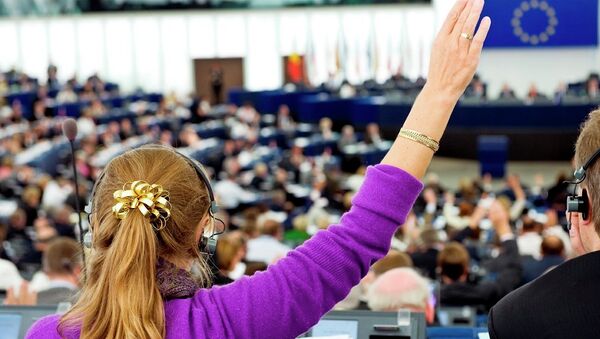Edward Snowden revealed the extent of mass surveillance by the US National Security Agency (NSA), together with the British spy agency GCHQ. His exposure caused outrage around the world after the sheer volume of mass data collection by the NSA and GCHQ was revealed.
Over the past decade, the European Parliament has consistently been calling on the European Commission to propose EU legislation on the subject. Most recently, the European Parliament's special TAXE committee called on the Commission to present whistleblower legislation by June 2016. However, the European Commission has yet to respond to these calls.
Today is #WPFD2016 and we want more transparency, protection for #whistleblowers and promotion of independent media https://t.co/fuqCtPeS6G
— Greens in the EP (@GreensEP) 3 May 2016
The LuxLeaks scandal revealed how hundreds of companies, including Pepsi, IKEA, AIG, Coach, Deutsche Bank, Abbott Laboratories, had secured secret deals from Luxembourg that allowed many of them to slash their global tax bills. The Panama Papers scandal exposed how many rich and powerful people and companies were using a Panamanian law firm to set up offshore companies to reduce their tax bills.
#LuxLeaks @support_antoine trial shows need for EU #whistleblower protection rules: https://t.co/2xuay9wlYv pic.twitter.com/e7fyK3ufOm
— Greens in the EP (@GreensEP) 3 May 2016
In a statement, the Green alliance said:
"Whistleblowing is not just about freedom of speech. It's not just about protecting working conditions, and it's not just about protecting the internal market. It's about all those things and more. It's the only way in which a lot of otherwise secret information can be brought to light, and hence it's often the best way, at least for now, to uncover wrong-doing, corruption, and downright immoral behavior."
Trade Secrets?
"Recent scandals uncovered by whistleblowers include illegal mass surveillance, industrial scale tax avoidance or the sexual abuse of children by peacekeepers. The biggest leak in history to date, revealed in the Panama Papers, has once again highlighted just how important whistle-blowers are for allowing in-depth journalistic investigations.
"However, instead of promoting public interest disclosures, the EU will soon adopt a Trade Secrets Directive that actually threatens to undermine future disclosures of this kind by treating almost any secretive business information as a trade secret," the statement said.
The Trade Secrets Directive — which has been under discussion since 2013 — is intended to harmonize EU laws on industrial espionage, including the unlawful use of misappropriated trade secrets and the removal from the market of goods that have been manufactured on the basis of a trade secret that has been illegally acquired.
During the talks, civil rights group warned that the directive could be used to prevent journalists from uncovering unscrupulous practices in European companies — a staple diet of investigative reporting. It is also feared that it could lead to companies taking legal action against whistle blowers and journalists themselves.
The main issue lies in the definition of trade secrets. Critics say the proposed definition is extremely broad and could be used to sue anyone who "unlawfully acquires, uses or discloses" secret business information.



